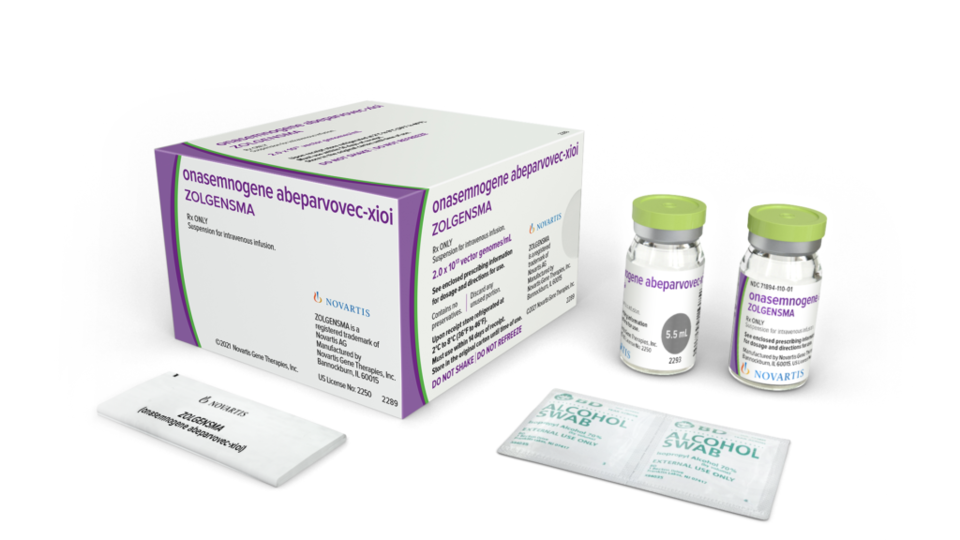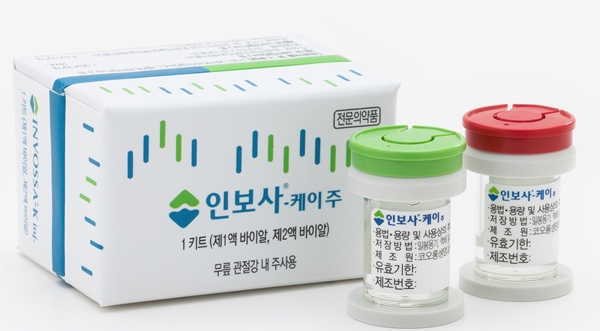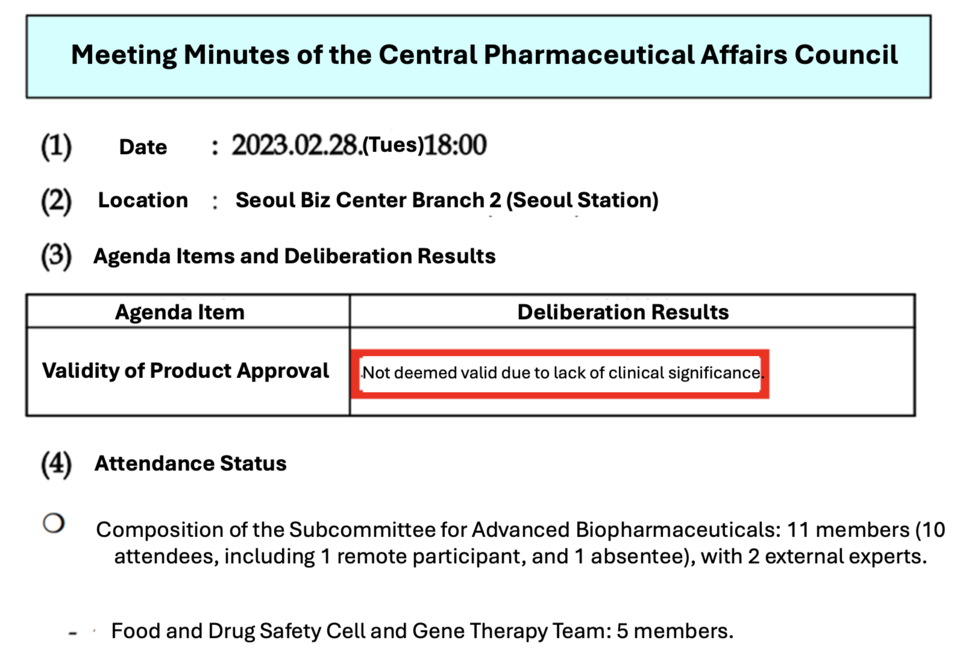We need to delve into three main themes: policy, strategy, and money. To kick things off, HitNews sat down with Dr. Jang-Ik Lee, a former FDA reviewer and currently a professor of regulatory science and clinical pharmacology at Seoul National University's College of Pharmacy. HitNews discussed policies and strategies with him.

Korea-Positive Regulation vs US-Negative Regulation
Innovative Drugs Stem from Negative Regulation
Dr. Lee, with over a decade of experience as a clinical pharmacology reviewer and team leader at FDA, you’ve evaluated numerous new drugs. In your observation, do you notice any differences in the regulatory environments between Korea and the United States?
"In considering the regulatory landscapes of Korea and the United States, it's essential to recognize their historical foundations. Korea's regulatory framework traces back to its monarchical beginnings, where laws were crafted to streamline governance, allowing for what's permitted while strictly prohibiting the rest – what we often term as 'Positive Regulation.'
Conversely, the United States, shaped by its colonial past, faced the challenge of governing a vast and diverse territory. This led to a regulatory approach where certain actions were deemed illegal, while everything else was essentially fair game – a concept known as 'Negative Regulation.'"
Do you believe that such differing policy environments have had an impact on the development of new drugs?
"The difference in regulatory environments becomes starkly evident in drug development. While Korea tends to say 'don't do anything unless explicitly allowed,' the United States adopts a stance of 'do anything unless explicitly prohibited.' Consequently, countries like the U.S. inherently foster a more innovation-friendly environment. Understanding such distinctions is crucial to grasping why drug development in Korea may lag behind."
Zolgensma of the US and Invossa, JointStem of South Korea
Do you have any concrete examples of how the regulatory environments in both countries differ?
"Let's start with Novartis' 'Zolgensma.' In 2019, Novartis faced controversy over manipulated data. They intentionally altered animal testing data used for Zolgensma's approval. How did the FDA respond upon discovering this?"

"The FDA treated the issue of manipulated animal testing data separately from the approval process. This is because in human clinical trials, Zolgensma demonstrated sufficient efficacy. Essentially, it met the criteria set by the FDA for approval, and in terms of efficacy, there were no apparent issues. Therefore, there was no need to revoke the approval. However, the FDA did hold Novartis accountable for the deception regarding the manipulated data."
That sounds quite reasonable. I see it as a facet of the negative regulation you mentioned earlier. The product that passes the criteria set by the regulatory authority is not interfered with, even if there are issues, they are dealt with separately in their own category. Could you elaborate more on this aspect of regulation?
"Now, turning our attention to Korea, we need to discuss Kolon Life Science's 'Invossa.' Invossa is a cell therapy product designed to treat osteoarthritis. It consists of genetically manipulated chondrocytes, which are cells that produce cartilage and signals to stimulate their proliferation, mixed at a ratio of 3:1.
The reason for the cancellation of Invossa's approval was that the latter type of cells, namely the genetically manipulated chondrocytes, were not properly present in the product. It turned out that the genetically manipulated cells included in the product were derived from kidney cells. Kolon Life Science was unaware of this fact until it was discovered, prompting them to report it to the Ministry of Food and Drug Safety (MFDS)."

Was the fundamental reason for the approval revocation due to difference in the cell lines used?
"While that was a contributing factor, the MFDS also raised concerns about the kidney-derived cells inherently possessing carcinogenic properties. However, the decision by the MFDS was somewhat disappointing. Kolon Life Science initially subjected the genetically manipulated cells to radiation during the production process of Invossa. After a certain period, the cells naturally died off. Therefore, even if there were changes in the cells, the ultimate outcome was that the product could still function properly."
While I can understand both Kolon Life Science's and the MFDS’ perspectives, isn't it true that issues regarding the mistaken cell lines should have been identified during the initial approval stage? Was it an oversight on the part of the MFDS not to review relevant data during the initial approval process?
"Such issues were indeed brought up in court. In the trial concerning allegations of obstructing official duties against Kolon Life Science executives, the court acquitted them. The reason being, 'From the beginning, the MFDS should have thoroughly requested and examined the data, which they failed to do.'
When engaging in a sports match, there are rules, right? And those rules shouldn't change or be introduced once the game has begun. Even if those rules were flawed, they can't be applied to a match already in progress."
That’s a great analogy. It seems that the issue lies in changing the rules after the game has started, rather than addressing them at the time of approval. Would you say this situation is stemming from Korea's unique positive regulation approach?
"Exactly. In the same context, it's necessary to revisit the case of R Bio’s 'Jointstem,' where the approval was revoked. "
It appears that there was also a situation in Jointstem where the rules were changed after the game had started. It seems like you're referring to the Central Pharmaceutical Affairs Council (CPAC). Could you elaborate on this?

"It's fundamentally the same story as the Invossa approval revocation case. When Jointstem went through the approval review process previously, during the second meeting of the Central Pharmaceutical Affairs Council (CPAC), the opinion was raised that 'there is no clinical significance,' leading to the revocation of approval. However, the issue lies in the fact that CPAC hadn't established criteria beforehand to determine clinical significance for osteoarthritis treatments during the review.
When the CPAC is convened, there aren't any specific rules or predetermined formats to follow. Moreover, the members participating in each session can vary. As a result, the outcome of approval reviews can be completely overturned based on the statements of the members present at each CPAC session."
MFDS should Enhance Internal Assessment and Pursue Transparency of CPAC
Is there a regulation stating that the MFDS must follow the opinions of the CPAC?
"The MFDs is not obligated to follow the opinions of the CPAC. However, if the Ministry decides to go against the council's opinion, it must have the capacity to withstand the consequences. This aspect is still lacking, which is why there is a trend towards the Ministry often adopting the opinions of the council."
I'm curious about the situation at the FDA. Does the FDA have an organization similar to Korea's CPAC?
“Yes, there is an Advisory Committee”.
Is the situation with the FDA's advisory committee similar to that of CPAC?
"While the CPAC and the Advisory Committee may appear similar on the surface, they are quite different upon closer examination. Firstly, members of the Advisory Committee are Special Government Employees of the U.S. federal government. They receive salaries from the government and are required to operate within the framework of federal law. This means they bear legal responsibility for their statements during the review process. Additionally, meetings of the Advisory Committee are broadcast live, which is another significant difference from Korea's CPAC."
I'm amazed to hear that they broadcast live. Unlike Korea's CPAC, which neither broadcasts its meetings live nor publicly releases anonymized meeting records, correct?
"Given that the Advisory Committee meetings are broadcast live and the members are government officials, it's difficult for them to make unauthorized or unverified statements. Moreover, these meetings often have significant attendance from industry stakeholders. As each member's statement can influence drug approvals, which in turn can impact the market, the members are even more cautious with their remarks."
So, to sum up, it seems that our CPAC needs to operate with greater transparency and have a clearer accountability structure. Additionally, the MFDS needs to have more autonomy in assessing the opinions of its committees.

